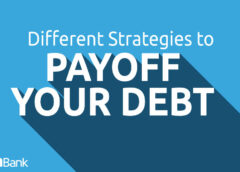
One of the most important aspects of a budget review is assessing your debt management. Debt can be a major source of stress and financial burden, especially if you have high-interest rates, late fees, or collection calls. However, debt can also be a useful tool to finance your goals, such as buying a home, starting a business, or investing in your education. The key is to have a clear and realistic plan to pay off your debt while balancing your other financial needs and priorities. In this section, we will discuss some strategies for paying off debt, such as:
1. Identify and prioritize your debts.
Not all debts are created equal. Some debts have higher interest rates, penalties, or legal consequences than others. You should make a list of all your debts, including the amount, interest rate, minimum payment, due date, and creditor. Then, you should rank them according to their urgency and impact on your finances. For example, you may want to pay off your credit card debt before your student loan debt, because credit cards usually have higher interest rates and fees. You can use different methods to prioritize your debts, such as the debt avalanche method (paying off the highest interest rate debt first) or the debt snowball method (paying off the smallest debt first).
2. Create a realistic budget and payment plan.
Once you have identified and prioritized your debts, you should create a budget that reflects your income, expenses, and debt payments. You should allocate a certain amount of money each month to pay off your debt, while also covering your essential living costs and saving for emergencies. You should also create a payment plan that outlines how much you will pay each creditor and when. You can use online tools, such as calculators or apps, to help you create and track your budget and payment plan. You should also review your budget and payment plan regularly and adjust them as needed.
3. Negotiate with your creditors.
If you are struggling to pay off your debt, you may be able to negotiate with your creditors to reduce your interest rate, waive some fees, or extend your repayment term. This can help you save money and avoid defaulting on your debt. However, you should be careful and read the fine print before agreeing to any changes, as some creditors may charge you extra fees or report your debt as settled, which can hurt your credit score. You should also get any agreements in writing and keep a record of your communication with your creditors.
4. Consider debt consolidation or refinancing.
Another option to pay off your debt is to consolidate or refinance it. Debt consolidation means taking out a new loan to pay off multiple debts, while debt refinancing means replacing your existing debt with a new one that has better terms. Both options can help you simplify your payments, lower your interest rate, and reduce your monthly payment. However, they also have some drawbacks, such as fees, longer repayment periods, or collateral requirements. You should compare the pros and cons of debt consolidation and refinancing and shop around for the best deal before applying for a new loan.
5. Seek professional help if needed.
If you are overwhelmed by your debt and need more guidance and support, you may want to seek professional help from a reputable and licensed debt counselor, financial planner, or attorney. They can help you assess your situation, explore your options, and negotiate with your creditors. They can also help you avoid scams, such as debt settlement companies
that charge high fees and make false promises. However, you should be careful and do your research before hiring any professional, as some may charge you hidden fees or have conflicts of interest. You should also check their credentials, reviews, and complaints before signing any contract.


